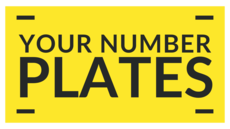Introduction: Turning Digits into Profit
A private registration plate is more than a collection of characters—it’s identity on wheels. Whether it spells out initials, a wordplay, or a symbol of status, these plates often become prized assets. When the time comes to sell, the process demands precision. The goal is simple: secure a fair price while remaining within the bounds of UK law.
Understanding the True Value of Your Private Plate
Private plates hold both sentimental and monetary worth. Emotional attachment, however, rarely aligns with market reality. A plate’s value depends on factors like length, letter pattern, recognisability, and demand.
Short, dateless plates and those with common names or initials tend to fetch the highest bids. Conversely, plates that resemble model codes or niche phrases may only attract limited buyers. Before listing, obtain a professional valuation to anchor expectations in fact, not feeling.
Checking Plate Eligibility for Sale
Not every plate can be traded freely. Plates issued by the DVLA must be officially assigned to a vehicle or held on retention before sale. Plates beginning with a Q (indicating a vehicle of unknown age or identity) are non-transferable.
Before advertising, confirm your right to sell. Only the grantee or grantee’s nominee can initiate the transfer. Attempting to sell without entitlement is a breach of DVLA regulations and could nullify the sale entirely.
Transferring Your Plate to a Retention Certificate
If your plate is still attached to a vehicle, it should be moved onto a V778 Retention Certificate before listing. This step secures ownership and ensures the plate is detached from your car’s registration history.
The DVLA process is straightforward: apply online or by post with a small fee, typically £80. Once complete, the plate becomes a standalone asset—ready to sell independently of the vehicle it once adorned.
Choosing the Right Marketplace
Selecting where to sell can make or break your profit.
· Private brokers handle the entire transaction, often charging commission but providing exposure and expertise.
· Auction houses attract collectors and investors, offering competitive bidding environments.
· Online platforms such as DVLA Auctions, Regtransfers, and eBay provide flexibility but require personal vigilance.
Each route has its trade-offs—higher visibility may mean lower control over pricing. Choose based on your comfort with negotiation and risk.
Avoiding Common Scams and Fraudulent Buyers
The allure of easy money often attracts opportunists. Beware of buyers offering above-market prices or insisting on quick transfers without documentation.
Never share certificate numbers or personal details until payment clears. Genuine buyers will respect due diligence. Verify identities through official channels or escrow services, and avoid unverified links or payment portals.
Legal Documentation You Must Have
Two key documents govern private plate ownership:
· V750 Certificate of Entitlement (for new plates purchased directly from the DVLA)
· V778 Retention Document (for plates removed from vehicles)
Without these, ownership cannot legally change hands. Keep digital and physical copies, and ensure all details—such as name and address—are up to date before initiating a sale.
Payment Safety and Secure Transactions
Cash deals are risky and traceability is paramount. Bank transfers or escrow services offer protection for both parties. Platforms like PayPal may seem convenient but can complicate refunds or disputes.
For high-value transactions, an escrow account ensures that funds are held by a neutral third party until both sides fulfil their obligations. It’s the professional standard for high-end plate sales.
Transferring the Plate to the New Owner
Once payment is confirmed, initiate the DVLA transfer to the buyer’s vehicle or certificate. If the buyer intends to assign the plate immediately, this can be done online—usually within 24 hours.
The DVLA will issue confirmation once the process is complete. Retain all correspondence until the buyer acknowledges receipt and ownership is officially transferred.
Tax and Financial Implications
For most private sellers, selling a number plate does not trigger income tax, as it’s treated as a personal possession. However, if you trade in plates regularly or profit substantially, HMRC may classify you as a dealer.
Keep detailed records of all sales, valuations, and communications. Transparency ensures compliance and protects against future queries.
Post-Sale Checklist
After the sale, update your vehicle registration if applicable, along with your insurance documents. Remove any digital listings and mark the transaction as complete.
If the plate was once displayed on your car, ensure the new registration plates are fitted before driving—displaying the old one is an offence, even temporarily.
Conclusion: A Smooth, Secure, and Profitable Exchange
Selling a private number plate isn’t merely a transaction—it’s a transfer of identity, prestige, and value. With vigilance, documentation, and adherence to DVLA protocol, the process can be seamless and rewarding. Protect your interests, stay within the law, and your unique combination of letters and numbers can turn from a personal statement into a profitable sale.

